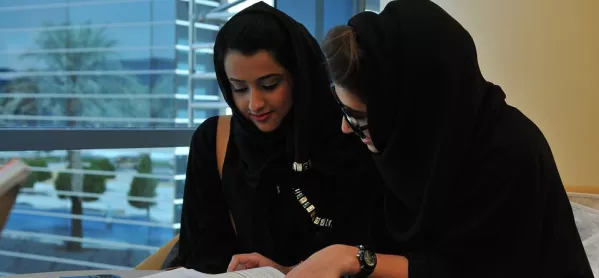The ‘attainment gap’ between teenagers from poor and more well-off families varies hugely depending on pupils’ ethnic group, a new research analysis shows.
Among pupils with Chinese backgrounds, there is only a three percentage point gap between the GCSE results of disadvantaged and advantaged teenagers.
But the gap stands at 32 percentage points among white British teachers, and 46 percentage points among Irish pupils, the Sutton Trust research brief says.
The report also shows how Chinese pupils from disadvantaged homes are almost three times as likely to achieve five good GCSEs as their white counterparts.
In fact, white working-class pupils’ score the lowest GCSE grades of any ethnic group - only a quarter of boys and a third of girls achieve five good grades.
Meanwhile, performance among disadvantaged teenagers from Bangladeshi, African and Chinese backgrounds has improved dramatically over the last decade.
The proportion of each of these groups achieving five good GCSE grades has improved by more than 20 percentage points in that period, compared with the national average of 13.5 percentage points.
The analysis suggests that these results may reflect improvements in urban schools, which have been faster than those in rural and coastal areas over the past 10 years.
Parental aspirations and cultural attitudes to learning are also likely to play a part: parents’ desire for their children to continue in school after the age of 16 has been shown to have a positive effect on attainment.
Sir Peter Lampl, chairman of the Sutton Trust, praised this strong cultural appreciation of education. However, he added: “It is worrying that there is such a disparity in the achievement of different ethnic groups at GCSE.
“Harnessing that same will to learn that we see in many ethnic-minority groups should be a part of the solution to the low attainment of many boys and girls. We need a more concerted effort with white working-class boys, in particular.”
Dedicated fund
The Sutton Trust is calling on schools to implement targeted programmes for those teenagers - including white, working-class pupils - at particular risk of falling behind. It should also consider incentives to encourage highly qualified teachers to take jobs in deprived schools.
It also suggests that the government should introduce a dedicated fund to support highly able pupils, particularly those from less-advantaged backgrounds who fall behind at school.
Want to keep up with the latest education news and opinion? Follow TES on Twitter and like TES on Facebook




